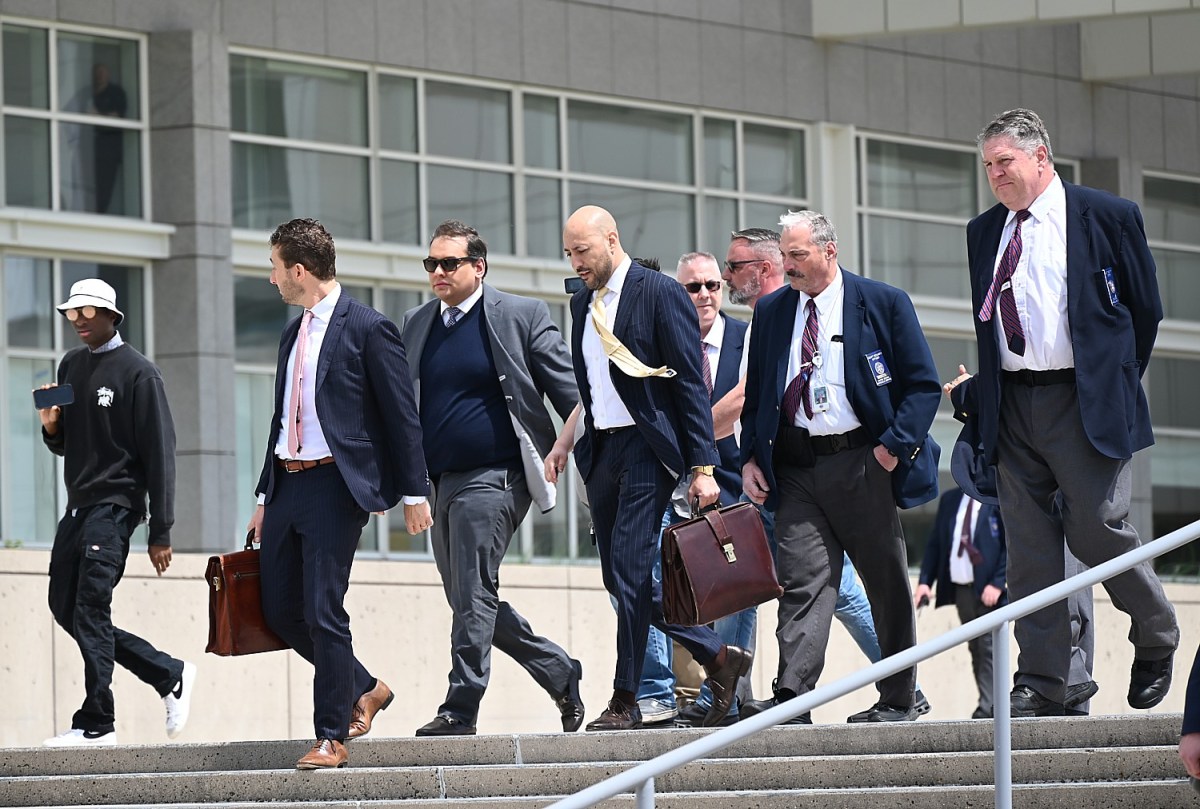Hamptons Soul: Kenosis

Father Constantine Lazarakis of the Greek Orthodox Congregation, and Jewish Center of the Hamptons Rabbi Josh Franklin discuss the meaning and importance of kenosis.
Rabbi Josh Franklin
Kenosis: A term that you probably have never heard of, but will make your life better.
I first learned of the term “kenosis” from Scott Peck’s book Golf and the Spirit. Golf and spirituality go hand and hand for me, yet I never thought one concept would simultaneously improve both my spiritual practice and my golf game until I learned what “kenosis” meant. Kenosis, as Peck describes it, is “the process of the self emptying itself of self, the point of being empty is not to have an empty mind; it is to make room for the new, the Other.” When I step up to the tee on the golf course, I try to consciously forget all the golf tips I’ve ever been taught, and simply be a careless vessel. This not only improves my game, but makes golf more enjoyable and spiritual.
Kenosis is not a golf term; it has a Christian origin. Yet it works well for the practices of golf and Judaism too. The wisdom of emptying oneself was discussed by rabbinic sages over a millennium ago. It’s taught in rabbinic wisdom that “anyone who does not make themselves empty like the wilderness cannot acquire wisdom of the Torah.” Those who learn best aren’t those who arrive full of preconception and knowledge, but rather those who show up humble and ready to fill themselves with newness. The prophet Hosea tells Israel that God will make the people like a wilderness, and render them like a desert (Hosea 2:5). One might think that Hosea is forecasting punishment, but he is actually prescribing kenosis. It’s only when Israel is brought back to a place of emptiness, according to Hosea, that they can once again grow and reconnect with God.
The idea that one who seeks fullness of life must first seek emptiness, rings as paradoxical truth. It’s parallel to what those in recovery programs often learn, that hitting rock bottom is a necessary step towards growth. How does one actually practice kenosis? For some, it will be through mediation, for others, through golf, or even perhaps through religious practice. When we are too full of ourselves, we leave no room for letting in that which is new and holy.
Father Constantine Lazarakis
We live in a time and place, namely early 21st century on the East End of Long Island, where self-absorption is pretty standard. Fashionable concepts of “self-love” and “my truth” are ubiquitous in conversations about spirituality and mental health, while self-righteousness and self-aggrandizement are the postures taken when discussing the political, economic and social ills of the day. If you read this column, you know that I find these trends deeply troubling. So, I was pleasantly surprised when my friend and colleague, Rabbi Josh, proposed that write a column on kenosis. The little known and obscure Greek word found in the second chapter of Philippians in the New Testament.
In Philippians, St. Paul uses “kenosis” to describe God’s love for humanity. It is used as a verb, usually translated as “emptied Himself,” and it refers to Christ’s willingness to offer his life for the salvation of humanity. Self-emptying is the opposite of arrogance, and it is the precursor to true love. Think of it as the anecdote to being full of one’s self. Self emptying, is actually at the heart of Christianity. Even before the crucifixion, God demonstrated His self-emptying love. He did so when He created the universe, pouring his living essence into our world and into us, and He did so when he bestowed humanity with free will.
God let go of Himself in His love for creation. Now, it is our turn to let go of ourselves for something greater. To be our best selves, we need to get out of ourselves. To fulfill our calling, we need to throw ourselves into God’s will. We do need to take care of ourselves, but we should take care of ourselves for a higher purpose. Perhaps embracing the obscure but spiritually important concept of kenosis can help us move beyond an ego-centric mindset, toward greater fulfillment and the greater good.
Father Constantine Lazarakis and Rabbi Josh Franklin will be co-teaching a class that will be open to the public this summer, True Love: An Interfaith Exploration of Relational Love. Details will be available soon.
Have a topic you’d like the Hamptons Soul perspective on? Email dtaylor@danspapers.com with the subject: “Hamptons Soul.”



